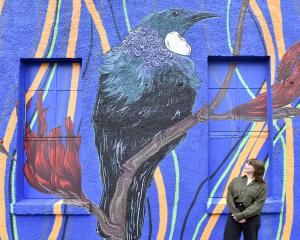It is bad news for those who are a bit twitchy about sharing their space with rats and mice.
The rodent population around Dunedin has done very well thanks to a long, warm summer, but with the cold setting in, they are shifting inside.
Pest control specialist David McPhee said he had not seen so many rats and mice around Dunedin and he has been in the business here for 30 years.
''In one place they had completely eaten the electrical wiring in the ceiling and in other areas they have eaten holes in the walls.''
He said the biggest problems tended to be around bush areas in Dunedin and near sea walls in coastal areas of the harbour.
''Once weather gets a bit colder they are looking for somewhere warmer to stay.''
Two other pest removal contractors spoken to said they had not noticed a big increase.
Department of Conservation programme manager biodiversity assets David Agnew said there were more rodents around in some areas.
''I was out at Taieri Head last week ... sitting in the office there, there were mice coming into the building.''
In the sensitive Catlins area where there is a population of endangered mohua, the department is carefully monitoring beech tree seeding and rodent populations.
Mr Agnew said they were expecting a moderate problem with rats this year but all the signs pointed to a big problem in spring next year. He said the warm summer had provided good breeding conditions for rats and was also good for beech trees, which in turn provided seeds as a food source for rats.
Animal Attraction staff member Kristal Lyon said domestic rats were a popular pet and there seemed to be a shortage of them at the moment.













